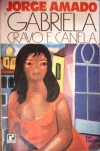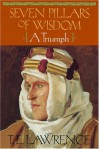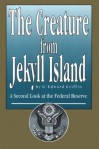Currently reading
FROM THE ROARING '20s TO THE FALL OF FORTUNES

"THE WINDING ROAD" is the 34th novel in the Morland Dynasty Series. It has all the classic hallmarks of the previous novels: complex, compelling, and fascinating characters; fantastic places that take on the attributes of vital, living beings; and a keen sense of life in motion.
The story carries on into January 1925. Polly Morland - the sole daughter of Edward 'Teddy' Morland, the lord and master of Morland Place in Yorkshire - is living in a fine house on Fifth Avenue in Manhattan, where she has been living for the past few years. She is a celebrated beauty and a successful fashion designer with her own fashion house and a burgeoning list of monied clients. A proposal of marriage from Ren Alexander, a darkly handsome, astute businessman with a mysterious past and political ambitions (and the connections to go with those ambitions) comes as a surprise. She had known him for some time, and while having enjoyed their outings together, never once considered marriage. When she tells Lennie, a distant cousin and close confidant --- who has pined for Polly for years, from the time he first met her a decade earlier when he had travelled to Britain to join the British Army to fight in the First World War --- he has his misgivings. But he is supportive of her and attends Polly's wedding, which was a rather grand event. Notwithstanding that, Lennie pays for a private detective to find out all he can about Ren and his past.
The novel also shifts among different members of the extended Morland Family line - shedding considerable light on the goings-on of the Comptons, the Brancasters, the Westhovens, and the Peakes. In the hands of a less skilled and assured writer, this scattering of characters across various places could result in a muddled mess, confusing the reader as to what the story is really all about. Thankfully, Cynthia Harrod-Eagles shows consummate skill in breathing life into characters that will fill and enrich the imagination of any reader. Love, crises, heartache, hope, and tragedy abound. There is never a dull moment in this novel, which carries the reader through the rest of the decade and brings home the shock and aftershocks engendered by the Wall Street Crash of October 1929 and resulting economic depression.
I'd like to cite the following words from "THE WINDING ROAD", which for me summed up the passage of an era so well described in it --- 'The revels of the whole country this last year [1929] - indeed, this whole decade [the 1920s] - had come to a sudden end. America had danced and played, growing richer almost by the day. Golf, tennis, sea bathing and beach picnics, the cinemas, the theatres, the restaurants, ever-fancier automobiles, sassy clothes, jazz, cocktails - it had been quite a revel. And now the party was over.'
And for Morland Place itself, it is again faced with challenges that could lead to its dissolution after being part of the family for 500 years. But I don't want to give too much away. At 662 pages, "THE WINDING ROAD" will kept the reader spellbound throughout.














 3
3
 1
1